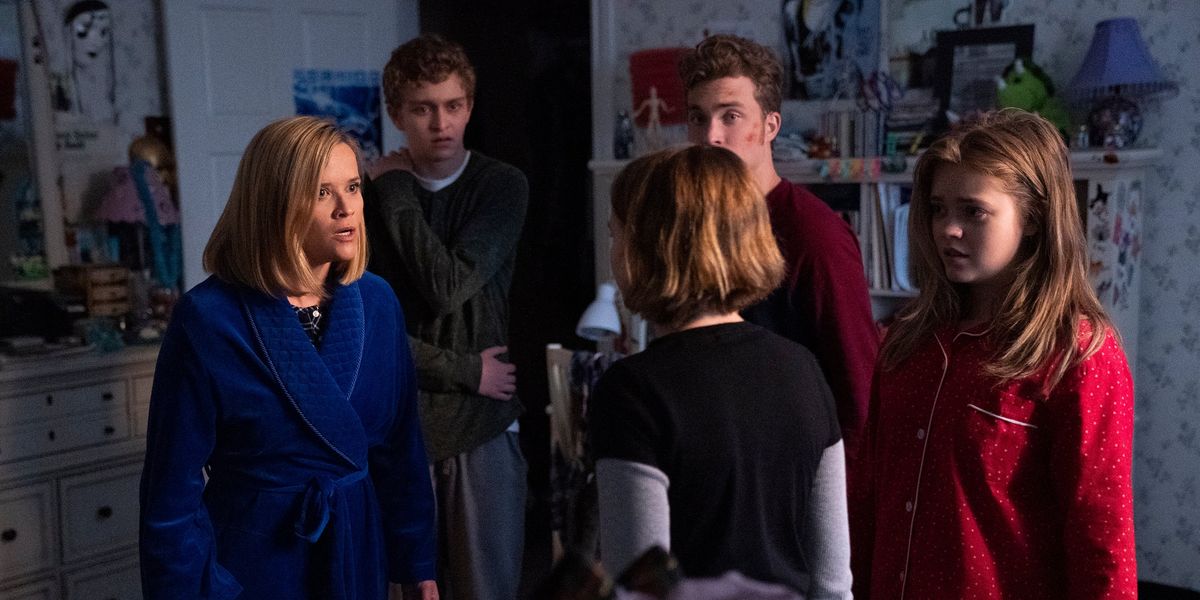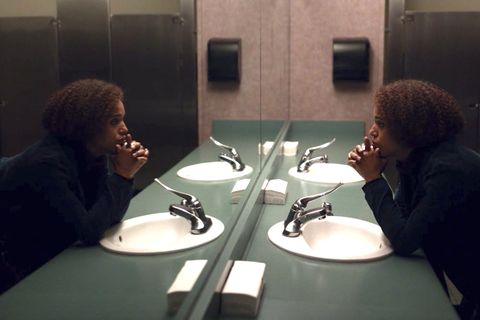Little Fires Everywhere wants to do so much. It’s ostensibly about race and class and privilege. And motherhood. And work. Choices and lack thereof. Acceptance and lack thereof. It’s about sexuality and secrets. It’s about who’s to blame. It’s about the monsters we try to hide under our skin.
You can make a masterpiece with all these pieces, but it’s not easy to do, especially when you’re lifting material from a New York Times bestselling book. Many fans were delighted with the twists and curves this TV adaptation spun together, taking Celeste Ng’s original story to new and unexpected heights. Others felt the series attempted greatness but hit the issues too squarely on the nose, exchanging nuance for yelling matches between warring mothers. As I broke down the differences between the book and the show each week, I found myself falling somewhere in the middle. I don’t love nor hate the show, but I respect how much it made me think.
In the Little Fires Everywhere finale, “Find A Way,” the characters are pushed far beyond their boiling points. Bebe Chow (Huang Lu), the Chinese immigrant forced to leave her infant at a fire station when she couldn’t afford to feed her, loses her court battle for custody. Bill Richardson (Joshua Jackson) confronts his wife Elena (Reese Witherspoon) about the times she ran from home to meet her high school flame (Luke Bracey). Mia Warren (Kerry Washington) explains to her daughter Pearl (Lexi Underwood) why she hid the truth about her father for so many years. And Izzy (Megan Stott), Elena’s youngest daughter, runs away after learning her mother never wanted her in the first place.
This all culminates in perhaps the most shocking change from the book. In Ng’s version, Izzy sets fire to the Richardson home as a way of scorching the history that plagues her. Then she runs away, hoping to do what Mia told her she could do: Start anew. In the show, all four Richardson children contribute to the fire. After witnessing their mother’s banshee-like breakdown, they no longer see her as the picture-perfect parent she tried to so hard present. Her outburst, first to Izzy, then Lexie (Megan Stott), disgusts and appalls them.
Izzy already poured the gasoline before her mother confronted her. Once she flees from Elena’s cutting words, Lexie, Trip (Jordan Elsass), and Moody (Gavin Lewis) decide to torch everything. They light matches and burn their rooms. They drag Elena out in time to avoid being swallowed by the flames. And when the firemen come to assess the damage, it’s Elena, not the children, who take the blame. “I did it,” she tells them. It’s a lie. It’s also, maybe, a sliver of the truth. But it’s not enough.
Let’s break down these final moments.
How the ending came together
The show’s creators deliberated over the ending, Vulture reports. At one point, they thought about having Elena set the fire, but that didn’t seem “believable.” Ultimately, they chose to make the kids the culprits to symbolize them uniting on Izzy’s behalf and turning against the life that’s “trapped” them.
“We thought there was an opportunity to create more mystery,” showrunner Liz Tigelaar explained to Vulture. “Why tell the audience who did it at the beginning?…We thought everyone who’s read the book is going to know the ending. So what if there is an ending that captures the spirit of her doing it, but we have the opportunity to add even more layers and complexity to it?”
Ng was supportive of the changes from the beginning, Tigelaar says. “If I’m remembering right, I think she knew that we were talking about maybe doing something different for the ending, but I don’t think she actually knew where we had landed until she read it,” Tigelaar told The AV Club. “And she said she loved it, and that’s just a testament to how generous Celeste has been with this adaptation.”
Why it matters
You can trace the pattern of behavior among the Richardson children and understand how they’d decide to set their house on fire. It’s a stretch, but it’s there. Production’s decision to change the book this drastically is a stirring creative choice and one that makes for unabashedly fabulous drama, but that doesn’t mean it’s perfect. Yes, Elena deserves to face the chaos she’s caused. But by handing the children the matches, literally, the show gives the kids the opportunity to avoid their own reckoning.
They blame Elena for much of what’s happened and are desperate not to “become her.” It’s true she’s the primary catalyst for much of their behavior, and perhaps the show really wants to push the Philip Larkin theory: “They fuck you up, your mum and dad.” But the Larkin argument has never been enough for me, because it allows those of us born into privilege to act as if we don’t benefit from it—that it’s our parents’ or grandparents’ fault, and we’re not complicit.
But of course we are. Wealthy white prejudice didn’t start with Elena. It started with her mother, who, despite being on the board at the local abortion clinic, told Elena “people like us” don’t have abortions. That probably came from her mother and her mother before her. Reese Witherspoon said it best in a Twitter Q&A: “When you start to learn more about Elena’s life and the things that she was taught, you realize she’s a product of her own environment.”
But systems of inequality and prejudice perpetuate themselves when people don’t make efforts to change those systems. That’s why we don’t exist in a “post-racial” society today, decades after Jim Crow and 23 years after the plot of Little Fires. The Richardson children made choices that make them just like Elena, thus perpetuating the norm.
There are moments when they finally understand this, and that’s when the show is at its best—when we get the sense that finally, the Richardson children might take action to change. We see this when Mia tells Izzy she can’t extricate herself from the Shaker system that built her following her undeniably racist “art” exhibition: “You don’t get to be the exception just because you want to be.” And when Moody, in a fit of rage, says “fuck ‘em” to all the rich and beautiful people who only care about themselves, Izzy practically laughs him off: “You’re acting the exact same way.” We see the children’s gradual understanding when they confront their mother; they see themselves in her, and they set the house on fire because they don’t like the reflection. They turn against the life they think they’re trapped in and the people they’re becoming by burning it all down.
The thing is, up until the moment they light the matches, they haven’t wanted to burn it down. The system has always benefited them. So why now? Because they’re angry at their mom? Because Pearl left town? The pieces don’t fit together. And they can’t burn their lives down. Not really. They can’t erase what happened or whom they’ve become. They can’t suddenly change the ways they mistreated Mia, Pearl, and their own sister. And they can’t erase the built-in inequality by lighting a match. When they wake up the next morning, they will still live within the Shaker system. Unlike their sister, they did not choose to run away, to pursue Mia and Pearl and try to right their wrongs. They still must wrestle with the privilege that created them, even when it’s frightening, and the show fails in not showing us that.
There’s a lot to cull from Elena realizing that, yes, perhaps she was wrong all along. When she she says she set the fire, she finally stops shifting the blame onto those around her. But moving forward requires much more than Elena understanding her responsibility for all that’s gone wrong. It requires more than the revelation that she does, in fact, love her youngest daughter. It requires every one of her children to face their own monsters, too. True growth requires Elena and everyone in her family to admit their privilege. And to finally do something about it besides, well, setting the house on fire.
Burning the house down is a half-measure. It’s not a reckoning. We, the viewers, can only hope it’s a symbol of how the characters’ lives will change moving forward. Maybe we’ll see that evolution in a season 2. But if this is all we get, we’re left wondering if the remaining Richardsons really learned any lessons at all.


